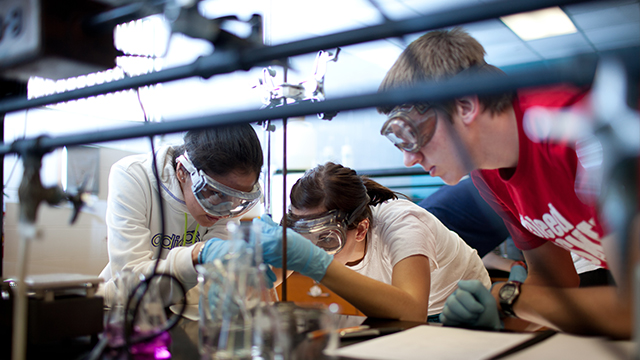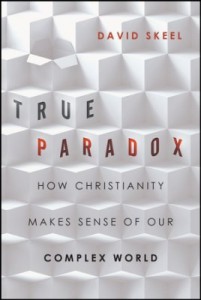“Is There Prayer on Mars?” is an essay on Andy Weir’s book, The Martian, that considers the positivist worldview of the book (and perhaps the movie). Students can consider this example as a representation of an outlook distinctly different from the sort of narrative that would be informed by the Bible. There is no traditional religious significance in […]
Items included on this page come from a variety of sources. The perspectives conveyed may or may not express a Lutheran ethos. They can serve our instruction as discussion-starters, examples (positive and negative), and illustrations of intersections between God’s two kingdoms, intersections sometimes characterized by tension, sometimes by congruence. Inclusion does not imply endorsement.

Alister McGrath on Science and Meaning
Luther scholar and microbiologist Alister McGrath writes, “Like It Or Not, We May Be ‘Meaning Junkies.’” Any philosophy of life or way of thinking about the questions that really matter will end up going beyond science. Why? Not because there is anything wrong with science. The point is that science works so well because it […]
100 Years of General Relativity
This basic overview, “From Newton to Einstein: the origins of general relativity,” can introduce the non-science student to themes that every educated Christian should know. “To grasp the meaning and significance of general relativity, it is worth reflecting on the state of physics in the 19th century to see how Einstein came to realize that […]
Are Religious Children More Selfish?
From the journal Current Biology this research continues the disputes about the relationship of religion and morality: “Parents in religious households reported that their children expressed more empathy and sensitivity for justice in everyday life than non-religious parents. However, religiousness was inversely predictive of children’s altruism and positively correlated with their punitive tendencies. Together these […]
The Need To Believe: Where Does It Come From?
Physicist Marcelo Gleiser briefly surveys several perspectives about religious belief and scientific belief: “When discussing the relationship between science and religion, people often take a polarized position: It’s either ‘I believe’ or ‘I don’t believe.’ The fact is that religion and science do overlap in people’s minds, in their life choices, in the difficult moral […]
The End of the Stem Cell Wars
Reprogrammed Stem Cells Work as well as Those From Embryos: The journal, Science, reports that a new study suggests that ES stem cells and iPS stem cells are equivalent, and this may help soothe worries about the capabilities of iPS cells. From 2002 to 2010, claims about the unique potential of human embryonic stem cells were common. Now, ES cells and […]
Human-animal Stem Cell Chimeras
Human-animal Chimeras: Stanford Scientists Condemn Funding Ban — The NIH has put a moratorium on stem cell and embryo research which strives to grow human organs in animals, called “chimeras.” Proponents say this could lead to an endless supply of organs for transplantation and improved drug testing, but opponents say it poses ethical and animal welfare […]
Bypassing Genetics, Permanent Species Change
Powerful ‘Gene Drive’ Can Quickly Change An Entire Species: Scientists have known for years how to genetically engineer living things. Sometimes, the genetic changes are passed down to offspring. A new technique called “gene drive” could make that happen almost every time. The advance is raising excitement about possible real-world uses, such as fighting diseases. But the approach […]
Interview with Hastings Bioethicist Daniel Callahan
“Daniel Callahan on Communitarian Bioethics” is a mid-length interview with the founder of the Hastings Center, the leading study- and thinktank in bioethics. Students can gain a helpful survey of the field in this discussion. Callahan’s forthcoming books is Five Horsemen of the Modern World: Disease, Food, Water, Chronic Illness, Obesity (Columbia University Press, 2016)
Can a 5-yr-old Decide Her Own Death?
This human interest piece from The Daily Beast discusses a distressing case of child illness and likely death. Students will find interesting the case itself and the ethical issues–but also the writer’s characterization of religion, “heaven” put in quotation marks, and assertions about what is certain and what is not. Hebr. 11:1-3 comes to mind. […]


 True Paradox: How Christianity Make Sense of Our Complex World
True Paradox: How Christianity Make Sense of Our Complex World